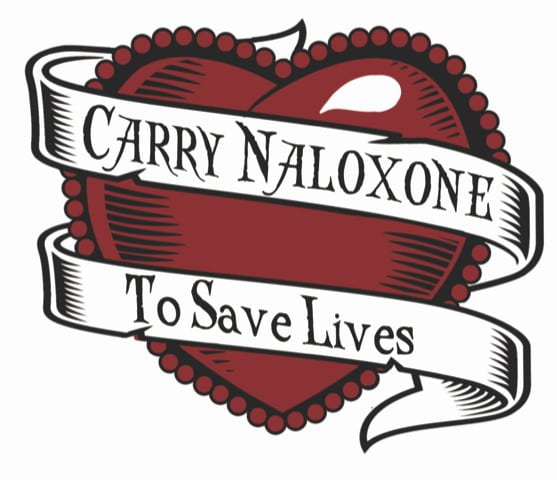31 August 2023
A new app to access naloxone, the life-saving medicine to prevent an opioid overdose, is launched in Somerset today on International Overdose Awareness Day [31 August]. The app, which is supported by University of Bristol research, is the first-of-its kind in England.

Naloxone is a medication that can quickly reverse the effects of an opioid overdose and can save lives if administered promptly. The app shows people where they can access free naloxone in Somerset and is being launched simultaneously with an online naloxone click-and-deliver service to support people who are unable to collect the medicine from their local area.
Both initiatives aim to reduce drug-related deaths by providing those at risk of an opioid overdose, their friends, and families with a free naloxone kit.
Councillor Adam Dance, lead member of Public Health, Equalities and Diversity at Somerset Council, said:
“We want to reduce the number of drug related deaths in Somerset. The launch of the new Carry Naloxone app and naloxone click-and-deliver service will make it easier for people to access and carry naloxone kits.
“The app provides a directory of locations where naloxone can be obtained, including local pharmacies and needle exchanges. It also includes information on how to recognize the signs of an overdose and how to administer naloxone.
“Naloxone should be seen as an essential medication and thought of in the same way as a defibrillator, or an EpiPen for anaphylactic shock. I did the training last year. It’s easy to administer, easy to carry and can ultimately save someone’s life.”
Carry Naloxone began as a research project, funded by Somerset Council through new funding from the Department of Health and Social Care to support the implementation of the 2021 government drug strategy, From Harm to Hope, a key aim of which is to reduce number of drug related deaths. The aim is to encourage people who may experience or witness an opioid overdose to carry naloxone with them. A review of international studies found 57% of people offered naloxone accepted it, but the rate of people who carry the medication is lower at 20%.
The development of the app was a direct result of workshops and one-to-one discussions with current SDAS clients and was delivered by Dr Jennifer Scott, senior lecturer at the University of Bristol’s , and Deb Hussey, Safer Lives Lead at Turning Point.
Dr Jennifer Scott, senior lecturer at Bristol Medical School at the University of Bristol, whose research is focused on developing harm reduction interventions said:
“By working in partnership with people who use opioids, drug service staff and peer m/entors, we have designed information materials that we hope are engaging, help raise awareness of naloxone and where to get it and encourage people in Somerset to carry naloxone.
“Carrying the medicine, as opposed to keeping it in a cupboard, is really important as you can’t predict when it will be needed. The quicker it is given, the more likely it is to save someone’s life. It is a safe medicine to use.
“The training is simple, and once trained, anyone can confidently administer naloxone. The ambition of this local campaign supports International Overdose Awareness Day in its mission to end overdose. We are grateful to Somerset Council and Somerset Drug and Alcohol Service (SDAS) for their support with this work.
“Naloxone Training is always available at the SDAS hubs in Yeovil and Taunton and through outreach and it only takes 10 minutes to show someone how to use naloxone.”
Deb Hussey said:
“The launch of these new services is a significant step forward in the fight against opioid overdoses in Somerset, and following a trial period we hope to roll them out across Turning Point services nationally.
“At a time when we are seeing changes in the drug supply and an increased risk of overdose, these innovative services will help to increase access to naloxone and will empower individuals to take control of their own safety.”
The campaign will be supported by posters designed by artist and harm reduction campaigner Michael Linnell, including a QR code that enables people to find the nearest stockist. Training sessions will be available today (Thursday) at the Somerset Drug and Alcohol Service (SDAS) hubs in Yeovil and Taunton.
For more information on the Carry Naloxone app and the naloxone click-and-deliver service, please visit the Somerset Drug and Alcohol Service website.
Turning Point’s Somerset Drug and Alcohol Service (SDAS) is commissioned by Somerset Council and provides free and confidential support for adults, children and families affected by alcohol and other drugs.
For more information or to access support for yourself or someone you care about, call 0300 303 8788 or visit www.turning-point.co.uk/somerset
For further information, please contact the press office on 01823 355020 or email pressoffice@somerset.gov.uk

Further information
About the NIHR
The National Institute for Health Research (NIHR) is the nation’s largest funder of health and care research. The NIHR:
- funds, supports and delivers high quality research that benefits the NHS, public health and social care
- engages and involves patients, carers and the public in order to improve the reach, quality and impact of research
- attracts, trains and supports the best researchers to tackle the complex health and care challenges of the future
- invests in world-class infrastructure and a skilled delivery workforce to translate discoveries into improved treatments and services
- partners with other public funders, charities and industry to maximise the value of research to patients and the economy.
The NIHR was established in 2006 to improve the health and wealth of the nation through research, and is funded by the Department of Health and Social Care. In addition to its national role, the NIHR supports applied health research for the direct and primary benefit of people in low- and middle-income countries, using UK aid from the UK government.